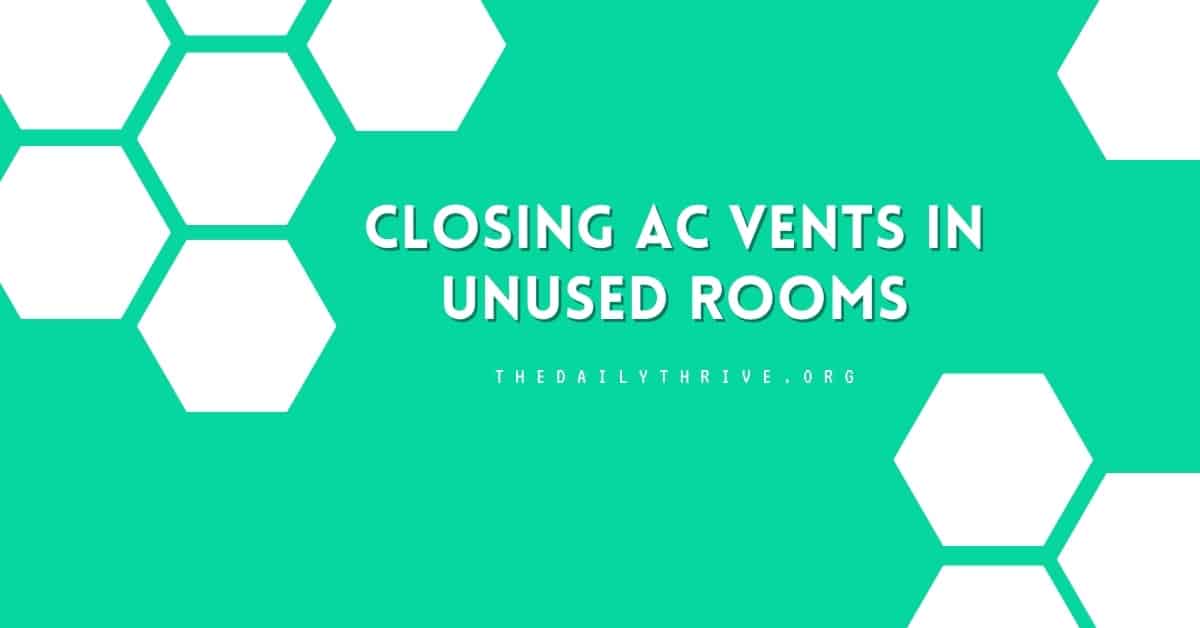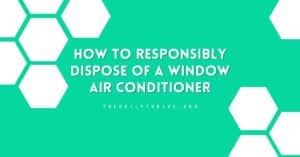Running your air conditioner during the summer is far from cheap. As a result, homeowners are always on the lookout for saving money on energy bills. An old wives’ tale is to reduce energy usage by closing AC vents in unused rooms.
We wouldn’t recommend trying it out because it is counterproductive to saving money.
Closing your air conditioner vents seems like the perfect way to reduce energy usage. After all, if you are not in a certain room, why would you want the available cold air to filter through there?
If cold air is blocked from one room, it seems like more air should circulate through other areas of your home that are being used. For many years, people bought into this seemingly intelligent logic.
A new study was released that changed everything. The study conducted by the Lawrence Berkley National Laboratory found that closing ac vents in unused rooms increase the amount of energy your system uses.
Is It OK To Close Vents In Unused Rooms?
Closing doors to prevent air flow doesn’t work, just like closing vents to prevent airflow doesn’t work. Instead, both of these things mess with the overall energy efficiency of your home.
Closing off certain areas creates pressure in the closed-off room. This causes the return duct to suck in cold air from any cracks while the warm air continues to try and push up through the closed vents.
If there are any leaks, the air will find ways out, and if not, the air will eventually be forced somewhere far from useful, such as the basement or floor cavities.
It means you are still paying for this air and energy, but you’re not getting any benefits from it.
Not only are you wasting energy, but also you run the risk of damaging your unit if you close too many air vents at once. If you have a newer energy-efficient air conditioner, it is designed to operate based on the total square footage of our home.
Even if you close vents off, it will continue to run fans at normal speed. When you close vents, you create a blockage that forces your system to go into overdrive as it tries to distribute air.
The impact of closing vents in unused rooms can be compared to running your unit with a clogged filter or restrictive supply duct.
If you are trying to heat your home during the winter, closed vents can also cause your ducts to freeze over, initiating even more work for your unit.
Long story short, closing vents in unused rooms doesn’t only cost you more money; it may also decrease the lifespan of your air conditioning unit.
9 Issues Caused by Closing the Vents in Unused Rooms
Here are some problems related to closing air vents in unused rooms:
- Greater chance of duct leakage.
- Unbalanced leakage pressure.
- Decrease in airflow.
- Undesirable air temperature.
- Damage or complete failure of the AC compressor (a very important component of your unit)
- Frozen coils.
- Closed rooms may produce moisture and mold growth.
- Damaged heat exchanger, which may contribute to a dangerous carbon monoxide leak.
- Higher electricity bill.
Alternative Ways To Save Energy Bills
If you live in a large home and only need to cool one or two rooms, investing in a window or wall AC unit might be wise. This allows you to cool smaller spaces without wasting energy heating or cooling unused portions of your home.
Invest in a new HVAC system. Newer units are much more energy-efficient and can reduce your energy costs by surprising amounts. Older AC models are about 55-77% energy efficient, while newer model offer 95-98% energy efficiency. Over time, a new system may pay for itself in monthly energy savings.
Have your ducts cleaned regularly to ensure no blockages or leaks decrease your unit’s overall efficiency.
Have a Zoning HVAC System installed. This may be your best bet if you only need to cool or heat certain areas of your home and don’t want to install separate window or wall units.
System zoning includes multiple thermostats placed throughout your home, which operate in conjunction with the ductwork of your forced-air system. The thermostats may be set to different temperatures throughout different zones in your home, allowing you to maintain different rooms at different temperatures.
According to the U.S. Department of Energy, you can save up to 30% on your electric bill when system zoning is properly installed. That’s a big deal considering heating and cooling costs total about 40% of the average home’s total energy costs.
Conclusion
There are no better ideas when it comes to saving money on energy bills than taking good care of your HVAC system. Closing air conditioner vents in unused rooms isn’t the answer. If you think that your energy bills are too high, call a professional technician to inspect your system to be more efficient.






